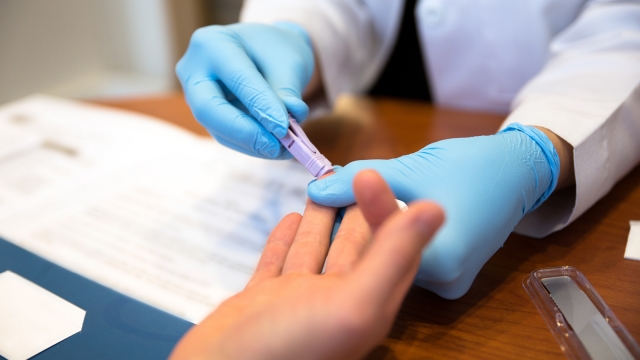We’re the Ones We’ve Been Waiting For: At the Crossroads of COVID-19 and HIV

COVID-19, sometimes known as coronavirus, has taken America by storm. With more than 2,000 reported cases and 70 deaths in the U.S., the American public is in a state of turmoil. Our fears and concerns have only been exacerbated by a lack of leadership from the Trump-Pence administration. Instead of being a leader to the American people, President Trump downplayed the threat of COVID-19. In early January, during a White House briefing, President Trump said, “We have it totally under control” and “We have a very small number of people in the country, right now, with it. Many of them are getting better. Some are fully recovered already. So we’re in very good shape.”
As HIV activist Mark King points out, despite the early delay, what happened with the early days of HIV and what’s happening here are light years apart. It took years for President Reagan to even utter the word AIDS. Hundreds of thousands of people died.
But that doesn’t mean people living with HIV and HIV advocates aren’t viewing COVID-19 through a unique lens.
When we think of Americans with compromised immune systems, we must consider people living with HIV (PLWH). While there is no specific data yet, in an unofficial statement from Dr. Jonathan Mermin, Director of the National Center for HIV/AIDS, Viral Hepatitis, STD and TB Prevention (NCHHSTP) at the Centers of Disease Control and Prevention, he states, “it would be prudent for persons with HIV to follow CDC recommendations for older persons and people with underlying health conditions.” In addition to the standard guidelines, having extra HIV antiviral medications and remaining up to date on vaccinations (influenza and pneumonia) are key.
It’s also more important than ever to stick to your treatment schedule and do your best to keep stress from impacting your mental and physical health. I’ve spoken to many HIV community leaders and frontline workers who are afraid of potential agency closures and the impact it will have on the community and their staff, especially staff who are paid hourly and unable to deliver services remotely. Some agencies have begun to explore unemployment benefit options and are working with their staff to make sure they know when and how to apply.
Kirk Myers, Founder and Chief Executive Officer of Abounding Prosperity in Dallas, Texas, had to cancel large testing events in an effort to minimize potential exposure to COVID-19. “We’ll be providing services as long as it is safe to do so and within CDC guidelines. We have also implemented more frequent disinfection of our fixed and mobile facilities,” Myers said. “We have made reasonable accommodations to support our staff impacted by school closures. And, we have implemented temperature and symptom screening for all staff upon arrival for work.”
Closures are unfortunate and will have lasting effects on the HIV workforce, but in many cases, it is the only way to prevent COVID-19 exposure. However, some agencies are ahead of the curve. Dr. Demarc Hiskson, Executive Director of Us Helping Us, implemented a telework model effective March 17. According to Dr. Hickson, “Us Helping Us frontline staff will communicate with all of our clients to discuss and offer tips as to how they can remain safe and healthy during this current environment. We have canceled all community outreach and testing activities to reduce the exposure to staff. However, we will provide HIV/STD testing by appointment only.”
Regardless of one’s HIV status, we all play a part in ensuring that we remain healthy. The common COVID-19 symptoms include fever, dry cough and shortness of breath.
For more information on the COVID-19, please visit one of the following websites:
We know that this is a time of great uncertainty and difficulty. We will weather this crisis as we have weathered crises before — by taking care of one another, by supporting each other and by ensuring we are doing all that we can to protect and empower the most vulnerable.
You Might Like
